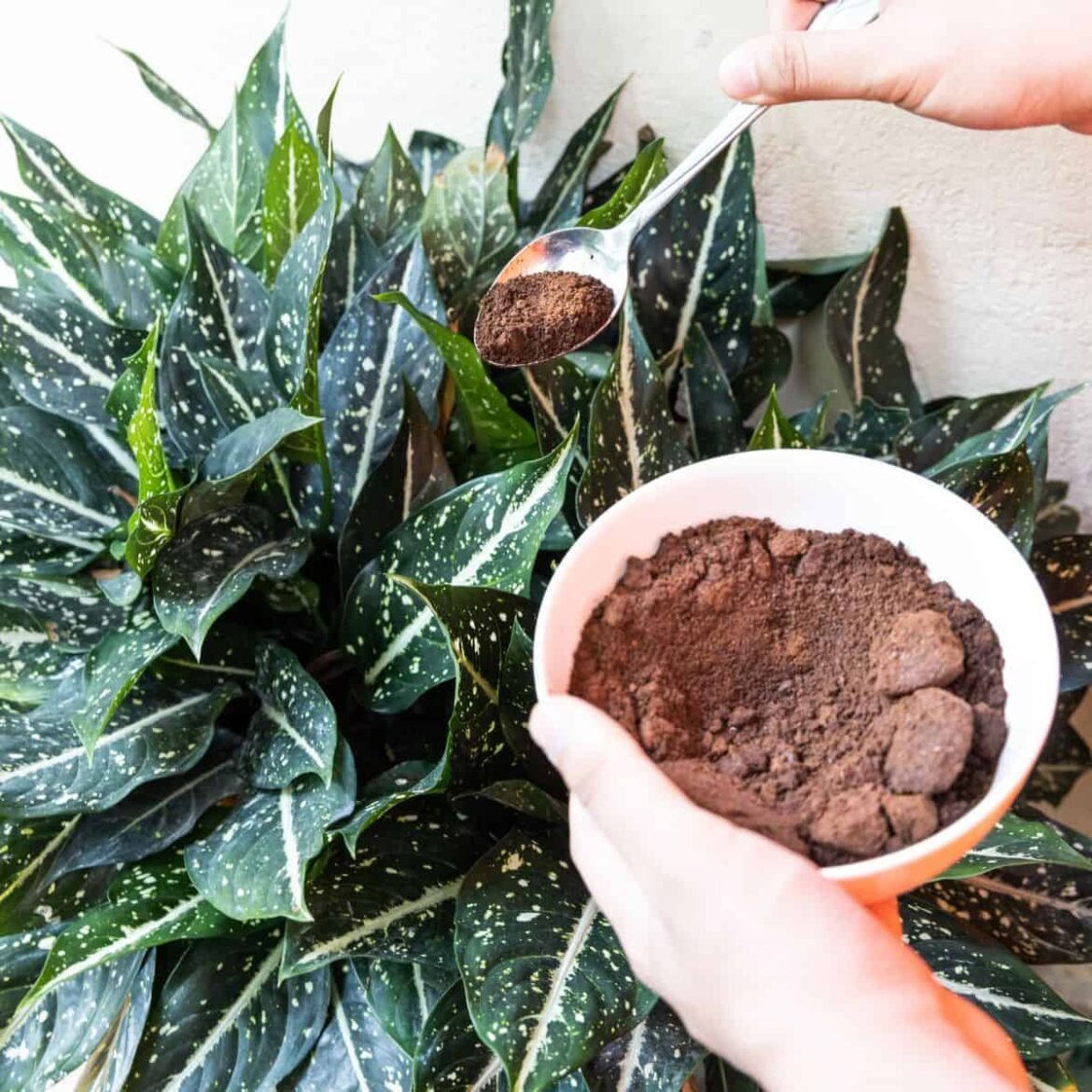Did you know that your kitchen cabinet holds secrets to a flourishing indoor jungle? You don’t need a green thumb or fancy fertilizers to see your houseplants thrive.
Brace yourself for some surprising revelations as we dive into the unexpected heroes that are hiding in plain sight, right inside your home! Prepare to become the indoor gardening guru your friends will envy.
1. Coffee Grounds: Nature’s Secret Plant Booster
Your morning coffee might just be your plant’s new best friend. That’s right, those used coffee grounds pack a punch of nitrogen which acts as an excellent fertilizer.

Sprinkle them atop your soil to encourage lush green foliage. Just be sure not to overdo it; a little goes a long way to prevent soil acidity from going overboard.
Your plants will be perky, much like you after your daily caffeine hit!
2. Banana Peels: The Potassium Punch
Banana peels are not just for pranks, they’re ripe with potassium, promoting strong roots and healthy blooming.


Bury a peel an inch under the potting soil or make a banana peel tea for your plants’ hydration. This nutrient boost is a favorite among roses and geraniums.
Talk about an appealing way to enrich your plant babies!
3. Eggshells: Calcium for Sturdy Stems
Stop tossing those eggshells in the bin! Crush them up finely and work them into the soil for an added source of calcium.


This helps prevent dreaded rot and supports strong, sturdy stalks. Think of it as giving your plants a bone-strengthening supplement.
Crunch time for healthier plants starts now!
4. Baking Soda: The Fungus Fighter
Baking soda isn’t just for baking; it’s a powerhouse for keeping fungal infections at bay.


Mix a teaspoon with a quart of water and spritz onto leaves to fend off funguses; it’s like giving your plants a protective shield against mildew.
Your plants won’t have a care in the world with this DIY pest deterrent.
5. Vinegar: Adjusting Soil pH Like Magic
A touch of vinegar can work wonders for alkalinity issues of your soil. Dilute it well to avoid acidity spikes.
Use sparingly for plants that prefer a slightly acidic environment, but it’ll spruce up their soil in no time.
A gentle makeover gift for your plant’s home turf.
6. Cinnamon: Nature’s Antifungal Aid
Spice up your plant care with a sprinkle of cinnamon, the natural antifungal agent.


Lightly dust your soil, especially when planting seeds to stop dampening-off disease, a notorious seedling killer.
Why not cinnamon spice and everything nice for your plants?
7. Aloe Vera: Healing and Nourishing Action
An aloe vera gel dilution is like a vitamin boost for your plants.
Fully packed with enzymes that encourage healthy root growth and soil aeration. Dab it on affected plant sections as a healing balm or blend with plant water for an invigorating drink.


It’s the succulent wonder from the world of gardening magic.
How to Apply These Items Correctly
When in doubt, less is more! Always integrate these items gently and watch your plants’ reactions.
If you’re introducing multiple new treatments, stagger their application to monitor effects independently.
This approach is the tender harmonization of modern science with ancient wisdom.
DIY Caution: Avoid Overdoing It
Avoid going overboard, as more isn’t always better. Excessive use can lead to adverse effects, harming your precious plants.
Remember, balance is key, much like everything else in life!
Err on the side of caution, and you’ll maintain a lush indoor paradise.
Household Items to Avoid Using
Not all household items are plant-friendly. Some, like certain peroxides or harsh chemicals, can be detrimental.
Always research before introducing new components into your plant’s environment.
Your steadfast vigilance will ensure happy, healthy plant companionship.
Experts Weigh In: The Benefits of Going Green with Your Home Remedies
Experts agree that incorporating sustainable practices leads to healthier plants and a more harmonious home environment.
Going green saves costs and contributes positively to your plant’s nutritive cycle.
It’s a win-win for your wallet and for Mother Earth!
Embracing the Plant Care Revolution
Embrace a plant care revolution by harnessing the power of everyday objects.
This sustainable practice brings a fresh wave of innovation to your plant care routine, helping you bond deeper with your green companions.
Everyone loves a bit of plant talk – share your experiences and reap the community wisdom!
Final Thoughts: Nature’s Little Helpers at Home
Revel in the revelation that some household items might just be the elusive remedy for thriving indoor plants.
The journey to lush greenery begins at home, where household items transform into nature’s little helpers.
Ready, set, grow!

